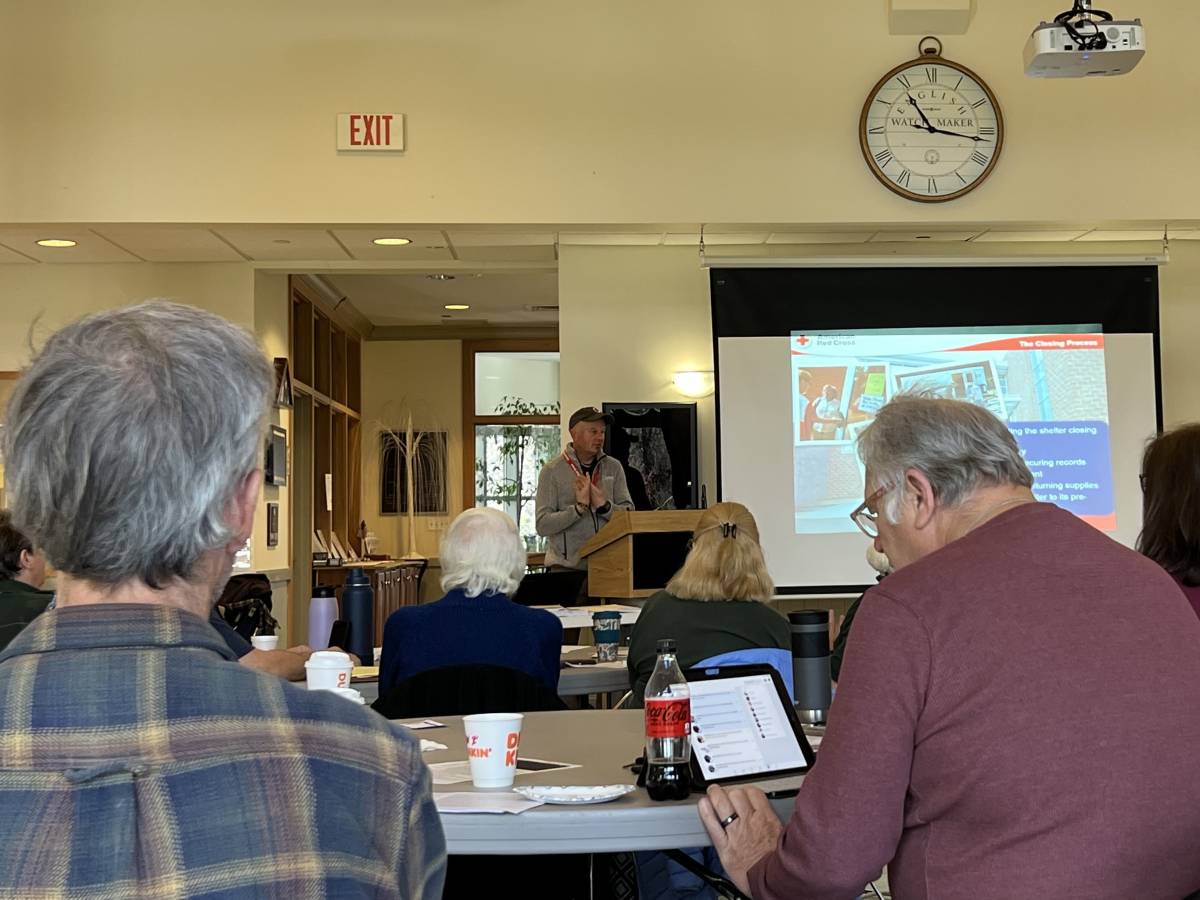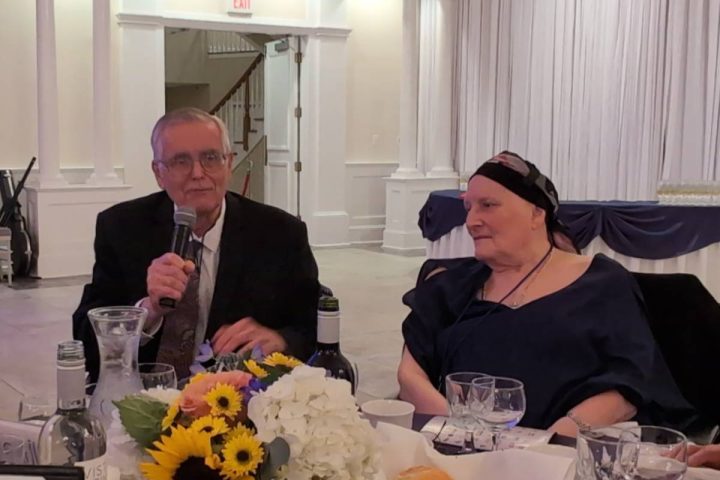Mark Rozelle of Easton, a longtime volunteer in disaster services for the American Red Cross, had just come back from organizing an emergency shelter for flood victims in Rhode Island following heavy rain, when he made an appearance at the Monroe Senior Center to share his expertise.
On Saturday, Rozelle, the Red Cross’ shelter lead for Fairfield and New Haven counties, provided training on setting up, running and closing emergency shelters for Community Emergency Response Teams (CERT) from Monroe and Trumbull and Monroe Boy Scout Troop 63.
He stood behind a podium, while going over his presentation on a screen to close to 40 volunteers, who sat around tables.
Rozelle said everything must be sanitized and a constant inventory must be taken at a shelter, from logging information on every person staying there and every meal served, right down to the number of snacks and supplies.
“We’re always counting,” he said. “FEMA wants documentation for aid after and we can’t make it up after the fact. We’re keeping track of inventory.”
The training session was held from 9 a.m. to 1 p.m.
John Goyette, scoutmaster of Monroe’s Boy Scout Troop 63, said his scouts logged service hours, while working toward their Emergency Preparedness Badges. “And it’s good to give back to the community,” he said of their attending Saturday’s CERT training.
Closing time
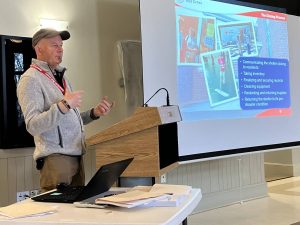
Rozelle, who has volunteered with the American Red Cross for 15 years, said volunteers tell residents staying at an emergency shelter all along that they do not know when it will close.
When a shelter does close, he said the Red Cross turns it over to the towns, which work to find temporary housing for everyone who still has no place to go.
David York, the Monroe CERT coordinator and the town’s deputy emergency management director, recalled times when some residents staying at the emergency shelter at the Monroe Senior Center after a storm did not want to leave.
“We had people who had such a good time here, they didn’t want to go home when the power came back on,” York said of the camaraderie during the stay.
“We have people who shelter-shop to go to the best shelters with the best food,” said Deborah Heim, a CERT volunteer, who is also Monroe’s tax collector. “We had people from other towns who shelter-shop.”
Once a shelter closes, Rozelle said volunteers’ work is not done.
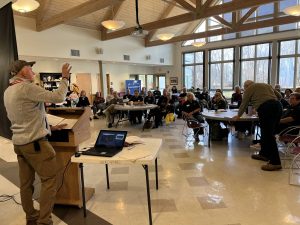
“You’re tired, exhausted, that’s where the fun begins,” he said. “You have to clean this mess. All the cots have to be sanitized, bagged and placed in the trailer. Though you’re tired, we can’t just throw things in the trailer.”
He said if a big mess is left at a building being used as an emergency shelter, the owner may not allow the space to be used for one again.
“People are allowed to bring blankets home, because it costs more to clean them — we encourage that,” Rozelle said.
However, he said some people think it’s a free for all and try to take everything, including the cots, so volunteers have to make sure that does not happen.
While closing an emergency shelter at a high school, Rozelle said he caught one man trying to shove a large industrial fan in the back of his Ford Pinto.
Setting up the cots
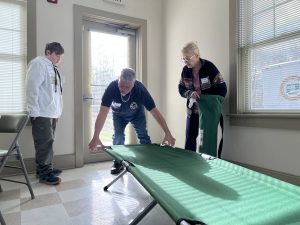
After his presentation, Rozelle broke everyone up into three groups for an exercise. One group acted as clients, another performed registrations, and the third group assembled cots while going over the setup and running of a dorm.
The exercise was followed by a question and answer period.
Marcia Fitzgibbons, a veteran CERT member, led the dorm group. She reminded everyone to check clients for wristbands, make sure everything is okay and to tell their supervisor if something doesn’t look right.
Then the group assembled cots in a room. Fitzgibbons told them to reserve space near outlets for any medical devices clients may need.
York said an emergency shelter is open to anybody and everybody who needs it, regardless if they are from town. The sign up registration sheet is not made public, he added.
If anyone has medical issues, York said CERT members work with the Monroe Health Department and the Monroe Volunteer Emergency Medical Service if further care is needed.
He recalled a time when a woman in a wheelchair had an oxygen bottle that ran out. Shelter volunteers scrambled to find a new bottle for her.
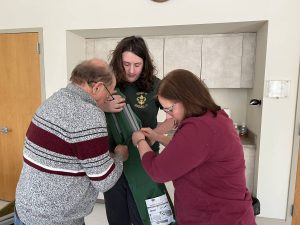
Though an emergency shelter is not set up as a hospital and clients must bring any medical equipment they need, York said there is someone onsite for medical evaluations.
Rozelle said he was impressed with the CERT volunteers and Boy Scouts who participated in Saturday’s training session.
“I am super excited to see people in the community involved and giving back to their town,” Rozelle said. “Their willingness to learn things they don’t know, we need more people like that in life.”
All respectful comments with the commenter’s first and last name are welcome.

